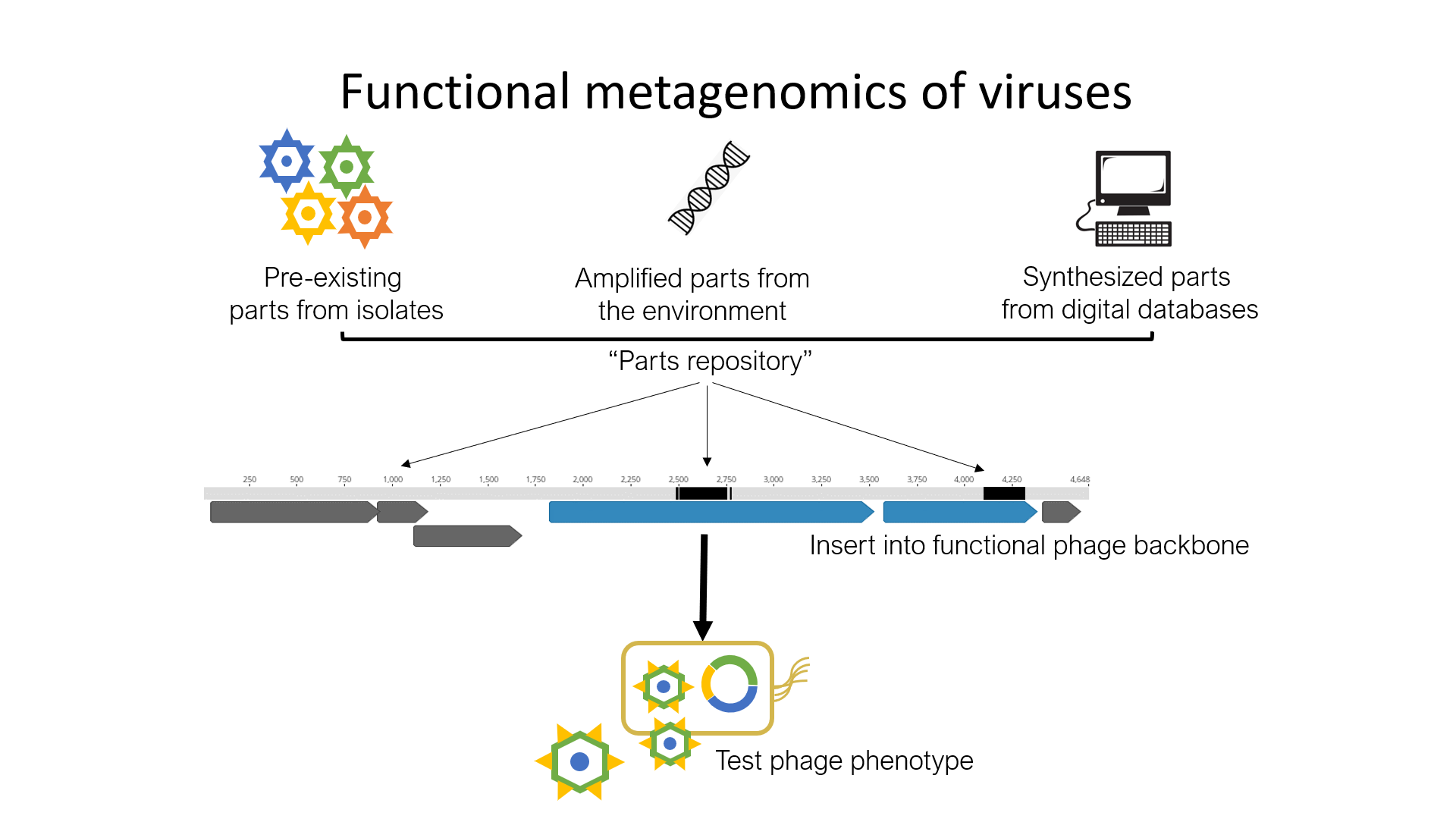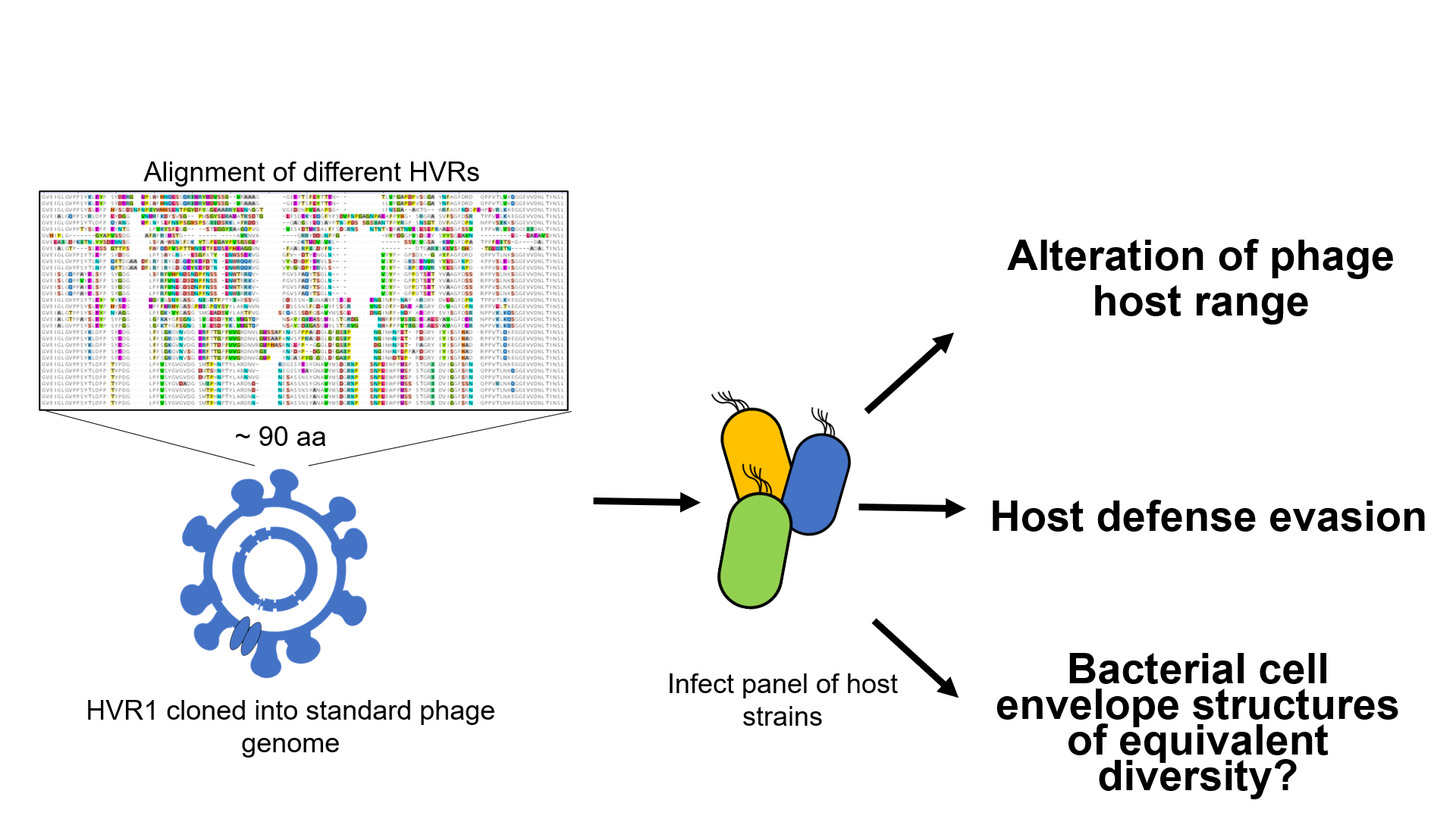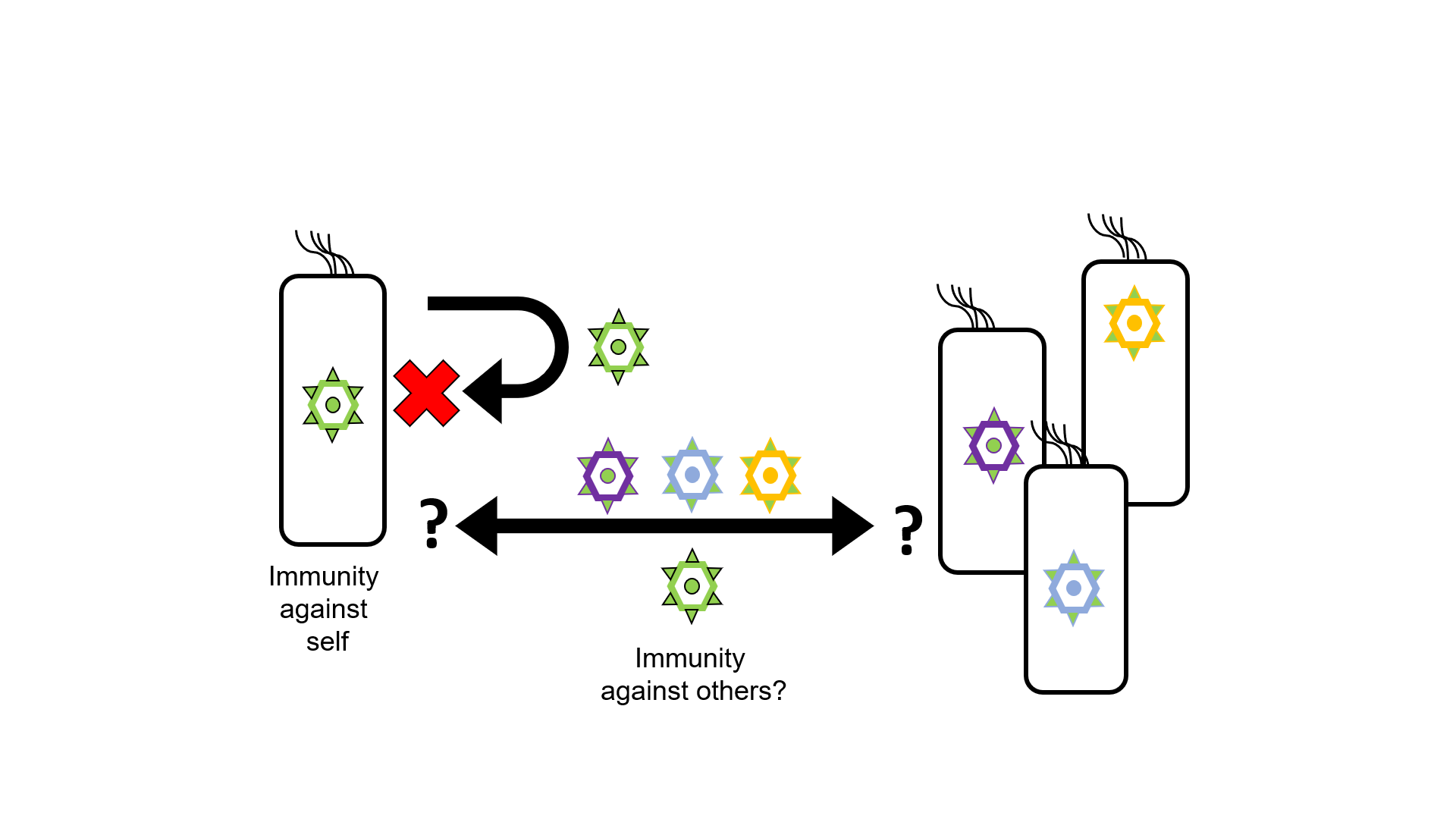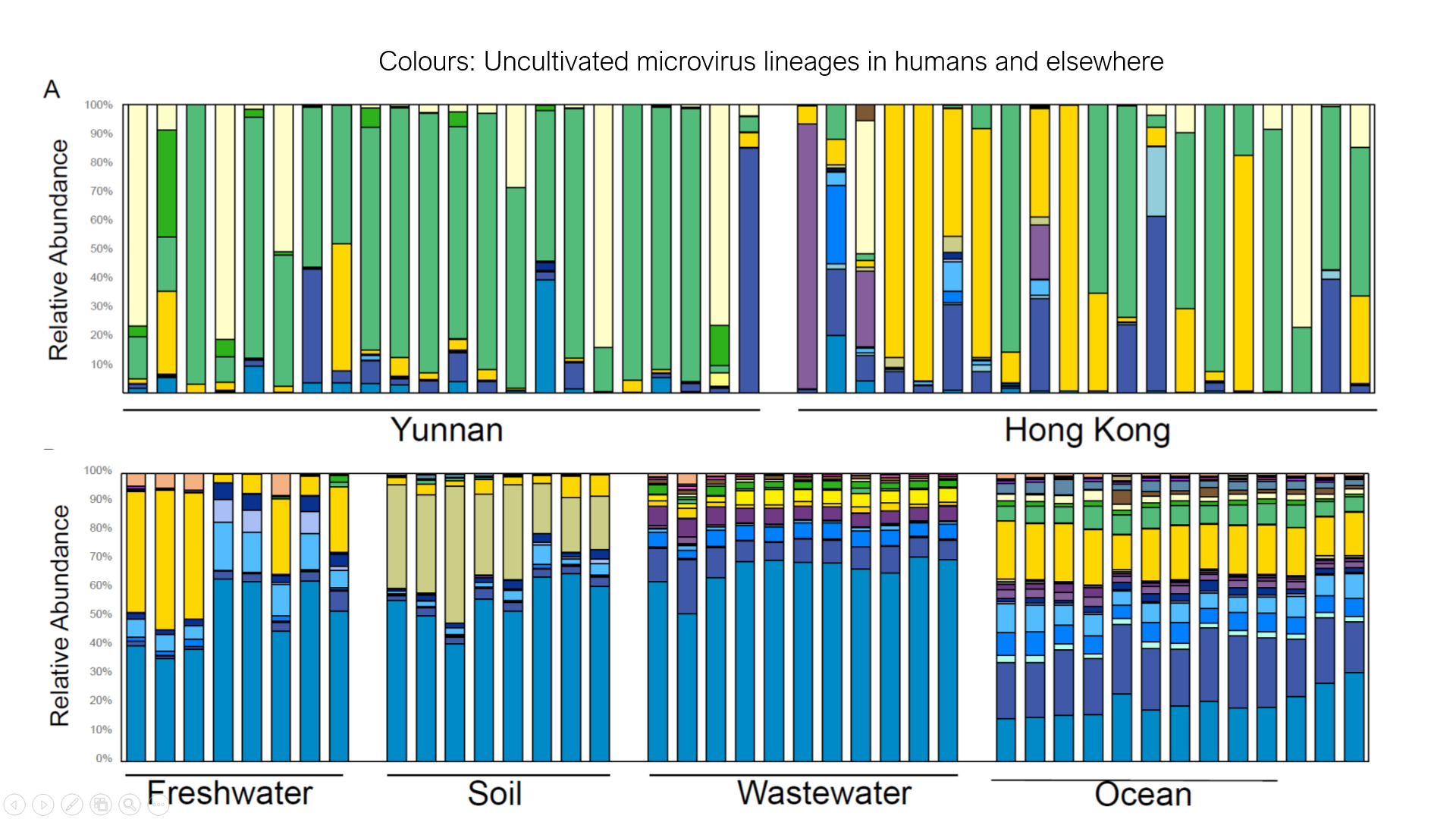
Our main experimental system is the enterobacterial phage genus Enterogokushovirus, a member of the Gokushovirinae subfamily of the Microviridae. These small, single-stranded DNA phages are found everywhere from the human gut to deep sea trenches, but with few exceptions are poorly understood.
What makes this system so unique is that it is amendable to genetic manipulation using simple molecular biological techniques – genes or entire genomes can be synthesized in-vitro and functional viruses can be produced essentially from scratch. Hybrid phages can be built with parts sourced from isolates, from environmental PCR or de-novo synthesis from digital templates. Therefore, the function of individual genomic parts can be studied in great detail.
Our long-term research goal is to gain a functional understanding of microvirus genetics that allows us to predict a given virus’ interaction with its host based on genomic information, and to specifically build microvirus genomes and functional viruses to affect target bacterial strains. Ultimately, we want to develop microviruses as a modular tool for phage therapy and engineering microbiomes by selected killing or culling of undesirable microorganisms.
However, our system is brand new – most aspects of its biology are yet to be determined, providing ample opportunities for a wide variety of research projects. In the short term, we want to understand how different regions in the phage genome can be exchanged or modified to alter the phage’s ability to infect bacteria or protect bacterial hosts from other phages. We also want to expand our repertoire of microviruses using classic and novel isolation techniques.
Ongoing projects



